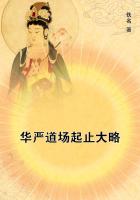(2.iii.3) The portion, which goes, in the shape of rent, to the landlord, and which is an excessbeyond the return made to the whole of the capital and labour employed upon the land, is, infact, the result of an accident. Suppose that all the land cultivated in the country were of oneuniform quality, and yielded the same return to every portion of the capital employed upon it,with the exception of one acre. That acre, we shall suppose, yields six times as much as anyother acre. What would be produced upon all the other acres, might justly be regarded as thereturn made to the labour and capital employed upon the land; and the whole of that return. Theadditional five-sixths, accruing from the singular acre, would not be considered as return madeto labour and capital; it would be considered as the accidental product of a particular virtue inthat particular spot. But what is true of this single acre is equally true of any number of acres, assoon as that event occurs which diminishes the return to any portion of capital, and induces allthe owners of capital to limit their profits to the measure of that diminished return.
(2.iii.4) If there is any portion of capital, employed upon the land, which pays no rent, it isevident that the wages and profits, in that case, must regulate the wages and profits in othercases.
(2.iii.5) It thus fully appears, that nothing can be considered as the produce of the jointoperations of capital and labour upon the land, beyond the return to that portion of capital whichis applied without paying any rent, which return measures the quantity of the produce allowed toremain, after the rent is deducted, as the return to all the other portions of labour and capitalemployed upon the land. The whole of that therefore, which can be considered as the realproduct of labour and capital, remains to be shared between the labourer and capitalist, after therent is withdrawn. It follows that, in considering what regulates wages and profits, rent may beleft altogether out of the question. Rent is the effect, and not the cause, of the diminishedproduce which the capitalists and labourers have to divide between them.
(2.iii.6) When any thing is to be divided wholly between two parties, that which regulatesthe share of one, regulates also, it is very evident, the share of the other; for whatever is withheldfrom the one, the other receives; whatever, therefore, increases the share of the one diminishesthat of the other, and vice versa. We might, therefore, with equal propriety, it should seem,affirm that wages determine profits, or that profits determine wages; and, in framing ourlanguage, assume whichever we pleased, as the regulator or standard.
(2.iii.7) As we have seen, however, that the regulation of the shares between the capitalistand labourer depends upon the relative abundance of population and capital, and that population, ascompared with capital, has a tendency to superabound, the active principle of change is on theside of population, and constitutes a reason for considering population, and consequently wages,as the regulator.
(2.iii.8) As, therefore, the profits of stock depend upon the share, which is received by itsowners, of the joint produce of labour and stock; profits of stock depend upon wages; rise aswages fall, and fall as wages rise.
(2.iii.9) In speaking of the produce which is shared between the capitalist and labourer, it isproper to explain, that I always mean such net produce as remains after replacing the capitalwhich has been consumed. As, in stating the constituents of price, we say that a commodity mustfetch in the market a value equal to three things: 1st, to the capital which has been consumed inits production; 2dly, to the ordinary profits of stock upon the capital employed; and, 3dly, to thewages of the labour; so in speaking of the portions into which, as the produce to be shared, thecommodity or commodity's worth is to be considered as dividing itself, we must set apart theportion, always a determinate amount, which is for the capital consumed, and which is distinctboth from profits and from wages. Thus, if in the production of a commodity, which sells for 100l. capital to the amount of 50 l. has been consumed, 50 l. is that which is to be divided betweenthe capitalist and labourer, as profits to the one, and wages to the other.
(2.iii.10) The terms alteration of wages, alteration of profits, are susceptible of variousmeanings, to which it is necessary to advert.
(2.iii.11) 1. If, by alteration, is meant, a change in the proportions, it is evident that analteration of one share implies an alteration of the other; and the proposition that profits depend uponwages, admits of no qualification.
(2.iii.12) 2. If a change in the quantity of commodities is meant, it will not be true, in thatsense, that profits so depend upon wages, as to fall when wages rise, and rise when wages fall; for bothmay fall, and both may rise, together. And this is a proposition which no political economist hascalled in question. If the powers of production are either increased or diminished, there will, inthe one case, be more, in the other less, to divide. The proportions remaining the same, bothwages and profits will, in the one case, be raised, in the other, depressed.
(2.iii.13) The terms may have another meaning still. When a change in wages and profits isspoken of, it may be the value of what is received under these denominations, which is meant tobe indicated.
(2.iii.14) To perceive what may, and what may not, be truly predicated or spoken of theterms in this sense, it is necessary to advert to a double meaning of the word value.
(2.iii.15) 1. It is used in the sense of value in exchange; as when we say, that the value of ahat is double that of a handkerchief, if one hat will exchange for two handkerchiefs.














